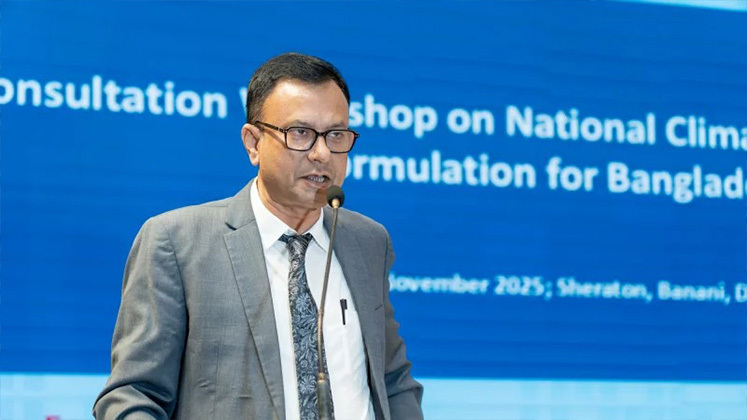Bangladesh has begun developing its first nationwide Climate Finance Strategy, marking a significant step towards strengthening the country’s resilience to accelerating climate impacts. The initiative formally commenced on Thursday with the launch of a nationwide consultation process in Dhaka.
The Ministry of Finance’s Finance Division, in collaboration with the United Nations Development Programme (UNDP), convened a high-level workshop bringing together representatives from the private sector, financial regulators, government agencies and development partners. The discussions focused on how to mobilise greater private investment for climate adaptation and mitigation.
The move comes at a critical moment for climate-vulnerable nations. At COP30, world leaders warned that global adaptation finance remains dangerously insufficient despite mounting risks from sea-level rise, extreme heat and climate-related disasters. Bangladesh—responsible for less than 0.56% of global emissions—ranks as the world’s ninth most climate-exposed country and requires an estimated US$26 billion in climate financing annually.
The National Climate Finance Strategy, developed under UNDP’s Inclusive Budgeting and Financing for Climate Resilience (IBFCR II) project, seeks to bridge this gap. It aims to align public financial management reforms, regulatory incentives and private-sector engagement to unlock climate finance at scale.
Speaking at the event, AKM Sohel, Additional Secretary and UN Wing Chief at the Economic Relations Division of the Ministry of Finance, said Bangladesh remained severely underfunded despite its high vulnerability. He said a clear, coordinated Climate Finance Strategy would help the country develop bankable projects and better position itself to secure the long-term financing needed for resilience.
The workshop featured a keynote address by Maliha Muzammil, UNDP Bangladesh’s Specialist in Climate Change and Sustainable Financing, followed by a technical session on the challenges of accessing climate finance. Participants examined blended finance options, green bonds, sustainability-linked loans, insurance instruments and public-private partnerships.
Thursday’s event was the first of three planned consultations. The Finance Division and UNDP will next engage financial institutions and development partners before drafting the Climate Finance Strategy for wider national review.
The final plan is expected to help Bangladesh align domestic resilience efforts with commitments made at COP30 and mobilise more predictable, diversified and substantial climate finance in the coming years.







